
Security researcher discovers vulnerabilities in iOS and macOS that could be exploited to hack webcams
After discovering a no fewer than seven security vulnerabilities in Safari for iOS and macOS, a researcher has received a $75,000 bug bounty pay out from Apple.
Ryan Pickren, a former Amazon Web Services (AWS) security engineer, found a series of security flaws in Apple's web browser, some of which could be exploited to hijack the camera of a Mac or iPhone to spy on users. The webcam hacking technique combined a total of three zero-day bugs.

Google pushes out urgent Chrome update to patch actively exploited zero-day vulnerabilities
Users of Chrome are being urged to update their browsers as Google is rolling out a patch for two serious zero-day vulnerabilities, one of which is already being actively exploited.
The Chrome security team says that both vulnerabilities are use-after-free security issues which can be used to exploit arbitrary code. One vulnerability exists in an audio component of the browser, while the other can be found in the PDFium library. The Windows, macOS and Linux versions of Chrome are all affected.
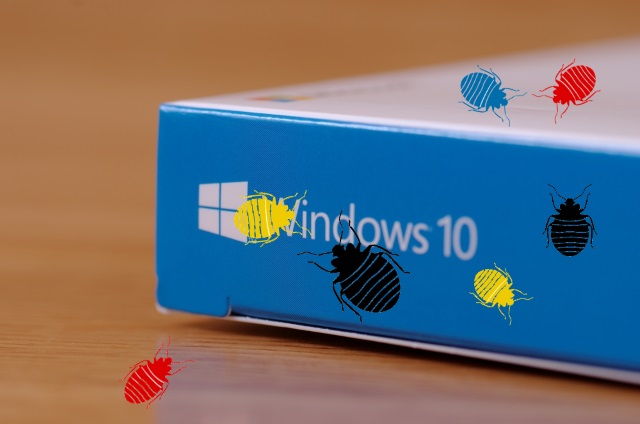
Exploit developer SandboxEscaper reveals Windows 10 Task Scheduler zero-day -- and says there are more to come
Well-known security researcher and revealer of exploits SandboxEscaper has released details of a Windows 10 zero-day that affects Task Scheduler. This is far from being the first time we've heard from SandboxEscaper, and this time around the exploit could enable an attacker to gain full control of Windows 10 or Windows Server files.
The researcher has previously revealed details of numerous other security vulnerabilities in Windows, and promises: "I have four more unpatched bugs where that one came from". Furthermore, she says: "I'm donating all my work to enemies of the US".
Internet Explorer flaw leaves Windows users vulnerable to hackers -- even those who don't use the browser
A zero-day exploit found in Internet Explorer means hackers could steal files from Windows users. What's particularly interesting about this security flaw is that you don't even need to be an Internet Explorer user to be vulnerable.
A security researcher has revealed details of an unpatched exploit in the way IE handles MHT files, and the problem affects Windows 7, Windows 10 and Windows Server 2012 R2. It leaves users vulnerable not only to having their files stolen by hackers, but also means they could be spied upon.
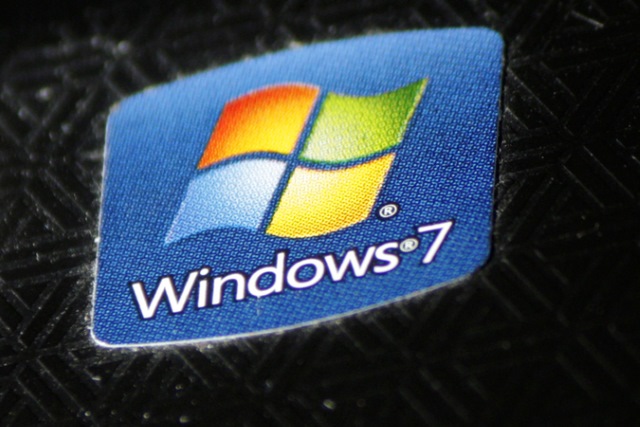
Google recommends upgrading to Windows 10 to avoid unpatched Windows 7 zero-day that's being actively exploited
Google is warning users of Windows 7 that they are at risk from a privilege escalation zero-day bug -- and the advice is to upgrade to Windows 10 as there is no patch currently available for the actively exploited vulnerability.
The problem stems from two vulnerabilities being exploited in combination -- one in Chrome, and one in Windows. Having pushed out a patch to its Chrome web browser, Google is warning that Windows 7 users are still exposed until such a time as Microsoft develops a patch.

Windows 10 bug could allow files to be overwritten, researcher shows
A security researcher has released proof-of-concept code for a zero-day exploit in Windows 10. The bug was revealed by SandboxEscaper, a researcher who has exposed Windows vulnerabilities in the past.
The latest bug makes it possible to overwrite files with arbitrary data, and while there are numerous criteria that must be met in order for the vulnerability to be exploited, it is still potentially serious. SandboxEscaper warned Microsoft about the problem on Christmas day, before publishing the PoC a couple of days later.
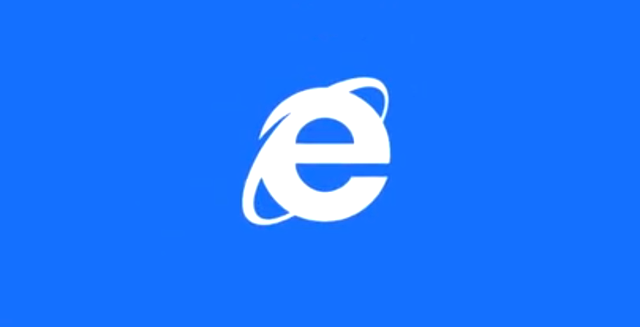
Microsoft issues emergency patch to fix serious Internet Explorer zero-day vulnerability
Microsoft has issued an emergency, out-of-band patch for an Internet Explorer zero-day that was being actively exploited in targeted attacks.
The company says that it learned about the vulnerability through a report from Google. CVE-2018-8653 affects a range of versions of Internet Explorer from 9 to 11, across Windows 7 to 10 and Windows Server.
Exploit developers claim 'we just broke Edge'
Security researchers claim to have unearthed a zero-day vulnerability in Microsoft Edge. The remote code execution is due to be revealed with a proof-of concept.
Microsoft has not yet been informed about the details of the security issue, but exploit developers had been looking for a way to break Edge out of its sandbox -- and it would appear that this objective has now been achieved.
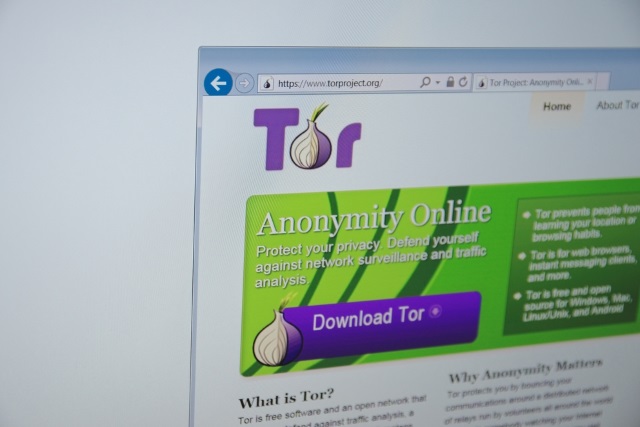
Security: Tor 0-day revealed on Twitter by vulnerability vendor
It's just two weeks since a Windows 0-day was revealed on Twitter, and now the same thing has happened for the Tor browser. Zerodium -- self-described as "the premium exploit acquisition program" -- exposed a backdoor vulnerability in Tor that makes it possible to bypass security protections.
The vulnerability affects Tor 7, and the vendor says that the problem has been addressed in the recently-released Tor 8. A proof-of-concept for the security has also been published.

Malware writers exploit recent Windows Task Scheduler 0-day vulnerability
It's a little over a week since a vulnerability in the Windows Task Scheduler was revealed. A patch for the 0-day has been released by third party security firm 0patch, but there's bad news for anyone who hasn't secure their system against the security threat -- malware writers are already taking advantage of the flaw.
The exploit was partly facilitated by the fact that the source code for a proof-of-concept exploit for the ALPC LPE vulnerability -- as well as a binary -- was published on GitHub. Now a group that has been named PowerPool has been spotted using the code in a malware campaign.
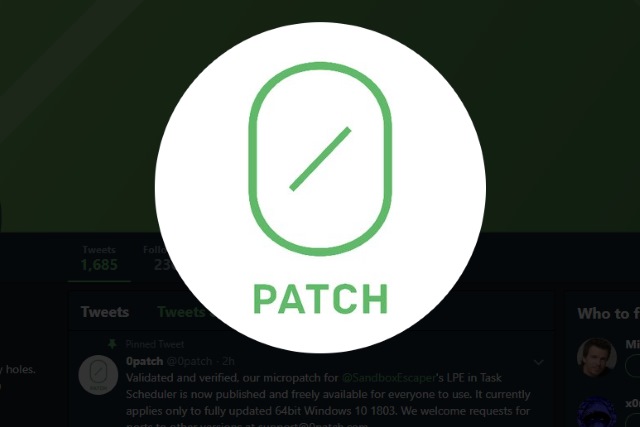
0patch beats Microsoft to patching Windows 10 task scheduler 0-day vulnerability
Just 24 hours after a zero-day bug in Windows task scheduler was revealed by @SandboxEscaper on Twitter, the vulnerability has been patched. While Microsoft said it would "proactively update impacted advices as soon as possible" the patch has not come from the Windows-maker.
Instead, it was left to micro-patching specialists 0patch to produce a fix for the Task Scheduler ALPC Local Privilege Execution (VU#906424) security flaw -- one that is a mere 13 bytes in size.

Microsoft Windows task scheduler 0-day outed on Twitter
A privilege escalation bug has been discovered in Windows' task scheduler and revealed on Twitter. A proof-of-concept has been published, and the vulnerability has been confirmed to be present in a "fully-patched 64-bit Windows 10 system".
The security flaw was exposed on Twitter by user SandboxEscaper -- who has since deleted his or her account. An advisory about the vulnerability has been posted on CERT/CC, and Microsoft says that it is working to fix the problem.

How to protect your company from 'zero-day' exploits
Is your company protected from zero-day exploits? Do you even understand what these threats are and how they can affect you? If you don’t, chances are you won’t be prepared when a hacker takes advantage of one of these exploits and steals a large amount of sensitive information from you.
Zero-day exploits are no joke -- some of the most costly cyber-attacks in history have come from hackers using these vulnerabilities. They can cost you more than just a lot of money; they can make your customers lose faith in your ability to protect their information. What can you do to deal with these exploits? Fortunately, there are a few ways to keep your network and the data you store safe and sound.

macOS High Sierra launch blighted by password-stealing keychain 0-day vulnerability
Apple has only just released macOS High Sierra, but before the update was even out of the door, a 0-day vulnerability had been discovered. A flaw in the Mac keychain makes it possible for malicious applications to steal the contents of the keychain, including plaintext passwords. It affects not only High Sierra, but also older version of macOS.
The way keychain works means that it should not be possible for the keychain to be accessed without providing the master password, but the vulnerability bypasses this requirement. The problem was discovered and demonstrated by security researcher Patrick Wardle from Synack, who is also a former NSA hacker.
OLE 0day affects nearly all versions of Microsoft Word
Security issues with Word documents are nothing new, but they have a tendency to rely on macros -- something which users have learned to become very wary of. But now security firms FireEye and McAfee have discovered a new attack strategy that takes advantage of Windows Object Linking and Embedding (OLE).
The attack can be used to infect even a fully patched computer with malware, and it is believed to be effective in most -- if not all -- versions of Microsoft Word, and Windows 10 offers no protection. The 0day works by using code embedded in a document to pull in malware from a remote server, using various techniques to hide what is going on.
